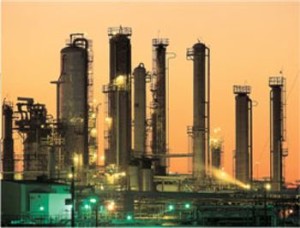Valero plans to boost Eagle Ford refining capability by adding a 90,000 b/d crude topper at its Houston refinery. The 160,000 b/d refinery is set up to refine the typical light, sweet crude, but the topper will allow the facility to process even greater volumes of lighter Eagle Ford Crude. As much as 40% of Eagle Ford crude production is consider condensate and has an API gravity of more than 50 degrees.
The topper will essentially separate components that are too light before they enter the crude unit.
William R. Klesse made the following comment just a few months prior: "So we have quite a study going on, for instance, at Corpus Christi and our Houston Refinery, where at the Houston Refinery we have a very large cat cracker and yet, we don't have a lot of crude capacity. So these are the things that tie to our whole strategy statement that I spoke about earlier where we look at things that continue to, in the essence, lower our overall cost to produce from the womb to the tomb."
The upgrade at the Houston Refinery will allow the company to refine greater volumes of domestic crude, which can be purchased at a lower cost than foreign crude. The upgrade will allow for greater production of gasoline and diesel from the refinery.
This announcement follows Flint Hills Resources' $250 million plan to upgrade its Corpus Christi Refinery. The Flint Hills plan was announced in August of 2012.
Gulf Coast refineries spent years readying for heavier crudes from South America, but the latest boom in domestic production has reversed the trend. Now, refineries like Valero and Flint Hills are preparing to refine more light crude.

